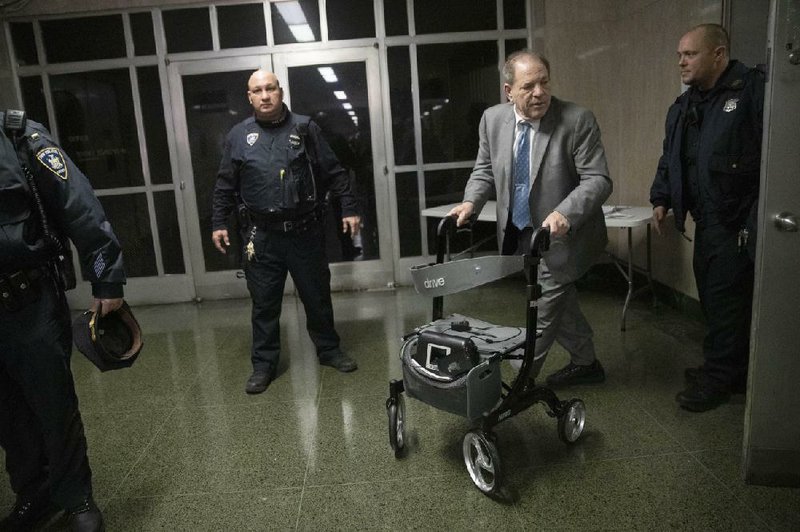NEW YORK -- Jurors in Harvey Weinstein's rape trial ended their first day of deliberations Tuesday with a lot of questions and no verdict in the case.
The panel of seven men and five women asked to see a floor plan of Hollywood producer Weinstein's apartment as well as emails, including one he sent to a private spy agency in 2017 listing as "red flags" certain accusers who he feared would step forward.
The jury is weighing charges that Weinstein raped a woman in a Manhattan hotel room in 2013 and forcibly performed oral sex on another woman, TV and film production assistant Mimi Haleyi, in 2006.
In deciding the most serious charges against Weinstein, which allege that he is a sexual predator, jurors must also weigh actress Annabella Sciorra's account of a mid-1990s rape. While her allegation is too old to be pursued on its own because of the statute of limitations in effect at the time, the law allows prosecutors to use her allegations as a basis for the predatory sexual assault counts.
[Video not showing up above? Click here to watch » https://www.youtube.com/watch?v=uO6lBNuBcUI]
The jury is to resume deliberations today.
Jurors sent their first questions about 40 minutes into deliberations, asking for the legal definition of terms like consent and forcible compulsion, and seeking clarity on why Weinstein wasn't charged with other crimes stemming from Sciorra's allegation.
Prosecutors built their case around testimony from those women, along with three other accusers who were not part of the criminal case but were allowed to take the witness stand because they say Weinstein used the same tactics on them.
Weinstein's lawyers contend that the acts were consensual. They focused on emails that some of the women sent to Weinstein and further meetings some of them had with him after the alleged assaults.
A torrent of allegations against Weinstein in October 2017 spawned the #MeToo movement. His trial is seen as a watershed moment for the cause, but Judge James Burke has cautioned jurors that it is "not a referendum on the #MeToo movement."
[Gallery not loading above? Click here for more photos » arkansasonline.com/219weinstein/]
Weinstein lawyer Donna Rotunno sent a similar message in a Newsweek essay over the weekend, drawing complaints from a prosecutor who said she appeared to be trying to influence the jury.
Rotunno wrote that Weinstein's jurors "have an obligation to themselves and their country, to base their verdict solely on the facts, testimony and evidence presented to them in the courtroom," not critical news stories, unflattering courtroom sketches or other outside influences.
Confronted about the essay in court Tuesday, Rotunno said she was writing "about the jury system as a whole" and was not speaking to the jury in Weinstein's case.
Assistant District Attorney Joan Illuzzi-Orbon said Rotunno's essay was "100% inappropriate." She asked Burke to instruct the jury to ignore the piece and revoke Weinstein's bail and send him to jail because, she argued, it couldn't have been done without his permission.
Burke denied the prosecution's request, but told Weinstein: "I would caution you about the tentacles of your public relations juggernaut."
A Section on 02/19/2020
